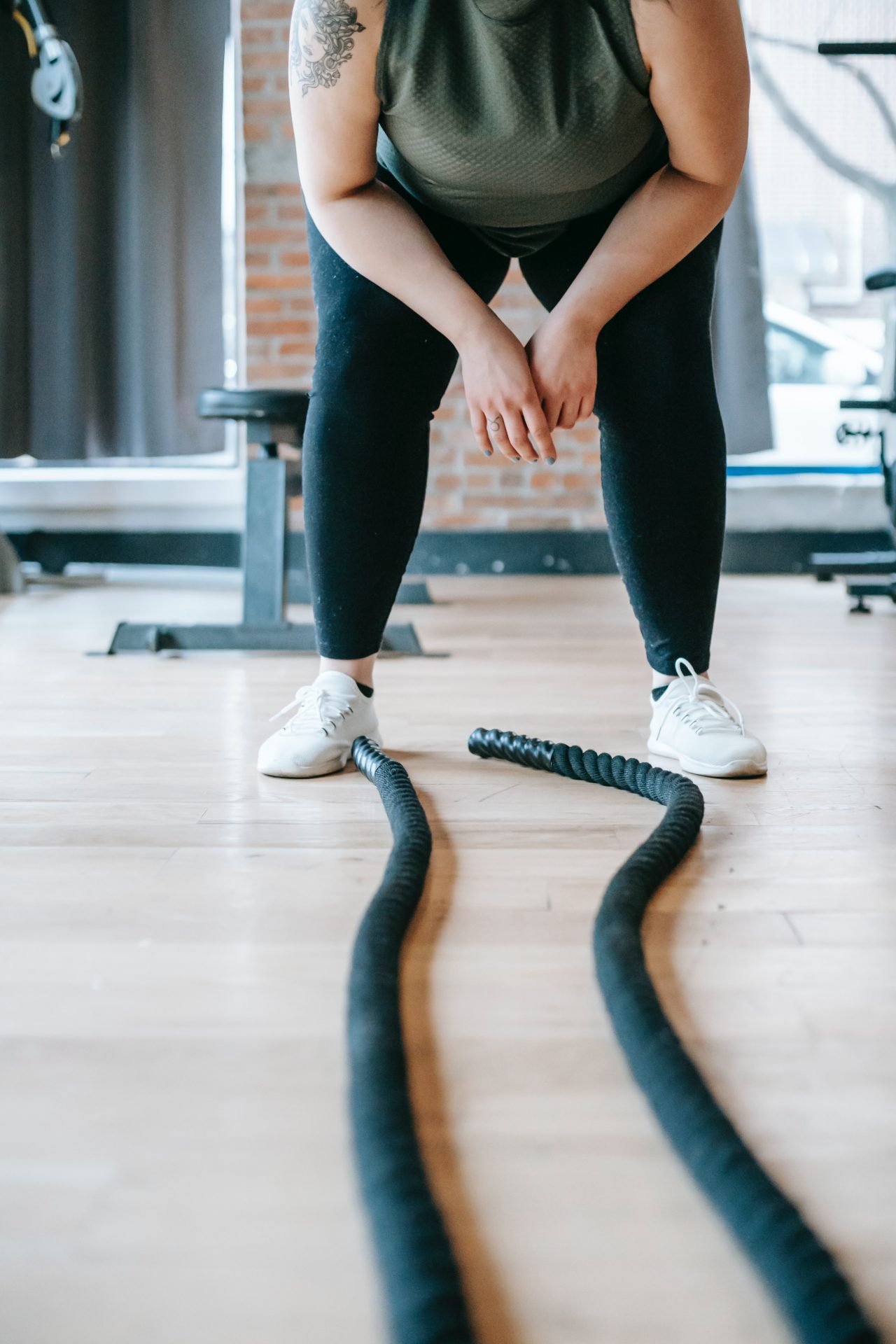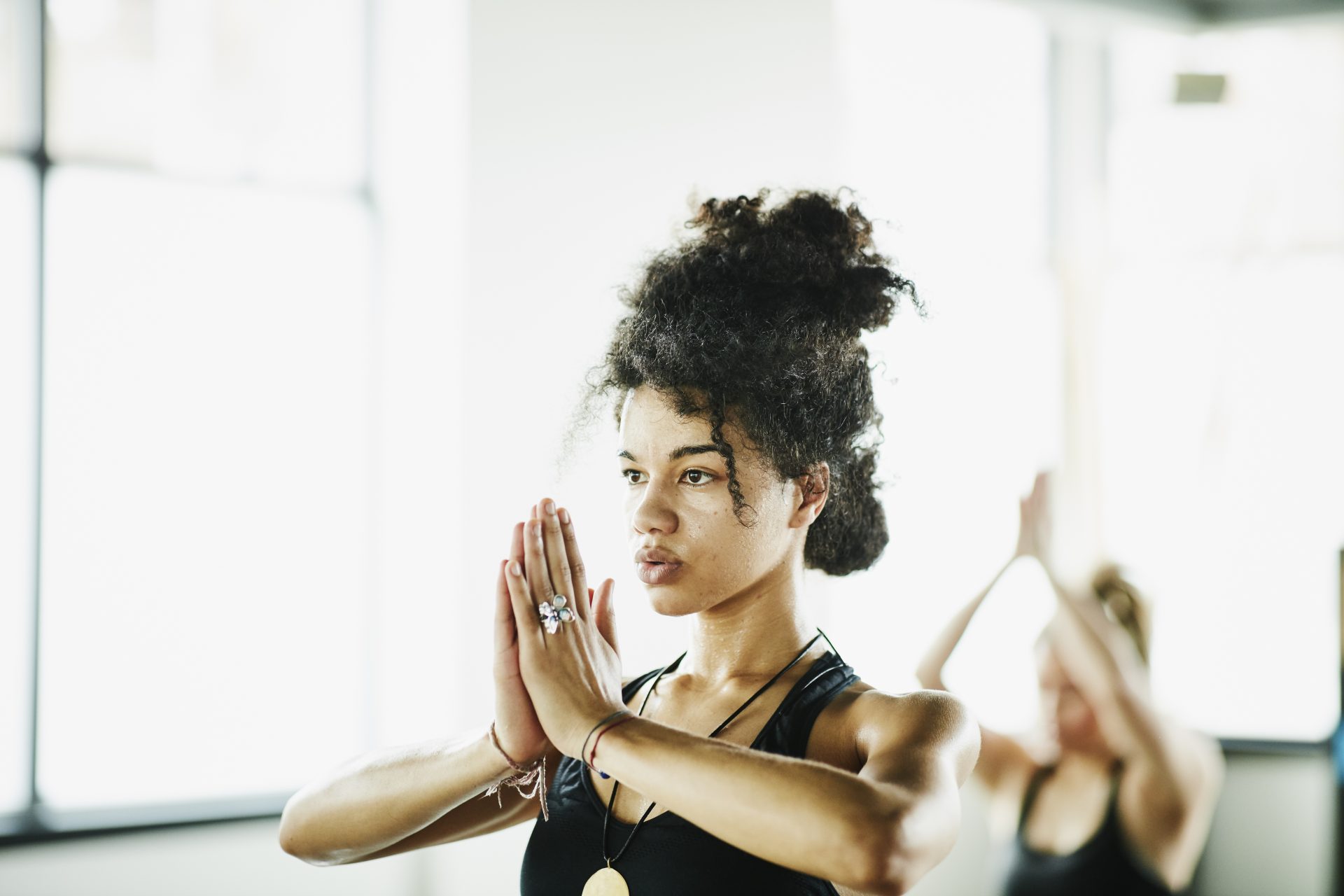Want to be less sensitive? Let workout help you with that
The psychology behind exercise and its usefulness in building mental resilience for those who are highly sensitive.
How do you react when your boss gives you feedback? Or when your friend cancels plans? Or when someone calls you out for something that they didn’t like? If your immediate thought is one of fear, stress or upset, you might consider yourself highly sensitive.
While sensitivity is by no means a weakness – it’s often a sign you are exceptionally tuned in to the world around you and your emotions – people can find it frustrating when the small things get to them. So if finding ways to improve your resilience is on your mind, know that exercise can help.
What is sensitivity?
Firstly, know that your sensitivity isn’t something that needs to take over your life. “Sensitivity in itself isn’t a personality trait but a metric of how we relate to other things,” says Dr Josephine Perry, sports psychologist and author of The 10 Pillars of Success. She explains that we tend to be sensitive to certain things, rather than sensitive by default. “For example, you might say someone is oversensitive to negative feedback or to rejection, but these are usually very subjective measures.”
You may also like
Christmas: these are the 7 core personality types at Christmas, according to a psychologist
However, Dr Perry notes that those who class themselves as ‘sensitive’ do tend to fall higher on the neurotic scale – a well-established personality trait that “describes someone with some emotional instability who is often overly negative. Those with high levels of neuroticism can sometimes struggle to manage stress and often interpret quite OK situations as being hopelessly difficult.”
How exercise helps you to be less ‘sensitive’
Maybe it sounds like a movie cliche or the influencer’s advice that you roll your eyes up at, but exercise has been shown to improve how we handle these tough situations. The theory in psychology is known as ‘growth through adversity’ – and yes, going through a workout counts as an adverse circumstance.

“The adversity doesn’t necessarily be something awful or traumatic, but it’s about getting through something you didn’t think you could. That could be finishing your first half marathon or lifting weights when you were originally too afraid to walk over to that section of the gym. When we do something which scares us, and we thought we couldn’t, we will teach our brain we are stronger and more capable than we thought and that is what helps build our resilience,” says Dr Perry.
It might be hard to remember that time you deadlifted your body weight when your boss is giving you feedback that you hate, so you may want to specifically take time to focus on dealing with our individual sensitivities too. But know that mental growth is subconscious, and happens over time. You might notice that you slowly become less and less upset or aggravated by certain situations, or more likely to say ‘yes’ to things you would never have volunteered for before after finding achievement through movement. “With resilience, we will feel more able to take on harder challenges in the future and able to handle any setbacks we come across,” adds Dr Perry.
Internal focus
Improving resilience doesn’t just come from achieving personal milestones. Often, the improvement is because the very act of exercise requires us to turn our attention inwards. “When it comes to wellbeing and positive mental health it is almost always better to focus on ourselves and how much we have improved at something than comparing ourselves with the highly curated and glossy, shiny lives of others – especially those we see on social media,” says Dr Perry.
“Those we compare ourselves with will have different genes, training history, injury background and entirely different likes and dislikes – so we would expect them to be doing things differently to us and trying to compare our metrics to theirs is setting ourselves up to feel like a failure. Instead, when we have self-focus and aim to improve on where we were before, we can see how exercising is beneficial to our wellbeing. The fact we can see ourselves improving and getting stronger despite some setbacks along the way helps us to realise we can be resilient.”

In that sense, resilience comes from the commitment (or the ‘journey’, if you will). That’s true for Angie Tiwari, who credits her yoga practice for improving how she comes at the rest of life’s tasks. “Ultimately I had to make peace with the fact there are some poses that I find really challenging, maybe anatomically I’m unable to do them as easily as others, or I’m just super tight that day.
“I no longer fight to get into it and then end up hating the whole practice, instead I just focus on the prep that I personally need to do and understand my own limits. I find I am more mentally resilient when I apply that to life. If I can’t do a particular life task straight away, or am resisting some sort of adulting job, I apply focus on that patience, trust and figure out each step.”
For Dr Perry, reflecting on our fitness routines is crucial to learning these lessons. “Resilience really develops when we go through difficult times, manage to come out of the other side and are able to see what we have learnt from it,” she says. So, what have you achieved in your training that you never thought you would?
Images: Getty
Source: Read Full Article
